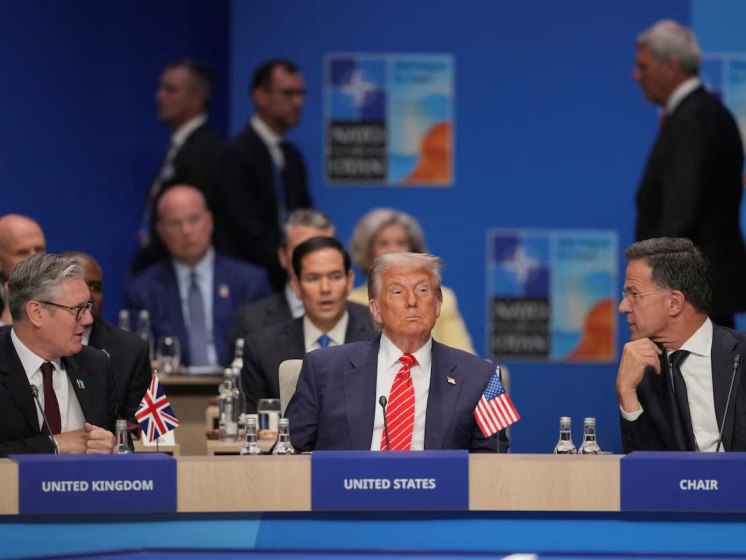NATO member states have agreed to increase their defence budgets to 5 per cent of national economic output by 2035, a move driven by persistent pressure from US President Donald Trump.
The agreement was reached during a summit in The Hague, where leaders committed to what was described as a historic shift in the alliance’s military posture.
Trump, attending his first Nato summit since 2019, welcomed the announcement, calling it a “big win for Europe and... Western civilisation.”
The agreement includes a plan for at least 3.5 per cent of each member’s GDP to be spent on core defence activities, with an additional 1.5 per cent to cover broader security-related investments.
In their joint statement, Nato leaders emphasised unity in facing what they called “profound” global security threats. They highlighted the long-term danger posed by Russia and terrorism, though notably did not issue a direct condemnation of Russia’s invasion of Ukraine as they had done in the previous year.
Secretary General Mark Rutte declared the alliance was becoming stronger and more balanced.
“No-one should doubt our capacity or determination should our security be challenged,” he said. “This is a stronger, fairer and more lethal alliance that our leaders have begun to build.”
Trump had earlier stirred debate by suggesting there were “various definitions of Article Five,” NATO’s core collective defence principle. However, he later clarified his position: “I stand with [Article Five], that's why I'm here.”
The summit also reaffirmed NATO’s commitment to supporting Ukraine and working towards peace. Although some nations had expressed unease about the increased spending demands, all members ultimately endorsed the final declaration.
Spain had raised objections before the meeting, arguing the new target was unrealistic. Economy Minister Carlos Cuerpo said Madrid was already making an “enormous effort” to reach 2.1 per cent, and criticised the debate over percentage figures.
Nonetheless, Prime Minister Pedro Sánchez signed the joint statement, saying it was “sufficient, realistic and compatible” with Spain’s financial position.
Belgium and Slovakia had also raised concerns, but both countries signalled their willingness to move forward.
Belgian Prime Minister Bart de Wever admitted the goal would be difficult but achievable.
“3.5% within 10 years is a realistic goal,” he said. Slovakia’s President Peter Pellegrini also indicated that Bratislava would not block the agreement.
French President Emmanuel Macron used the summit to push back against US trade policies, saying Europe could not be asked to increase defence spending while facing tariffs from its closest ally.
“We can't say to each other, among allies, we need to spend more... and wage trade war against one another, it makes no sense,” he said.
Despite some friction, the summit ended on a note of consensus, with leaders agreeing to the 5 per cent goal and stressing the importance of unity in the face of global instability.
Trump concluded the summit by declaring it a “big success” and a step toward more balanced burden-sharing within the alliance.
